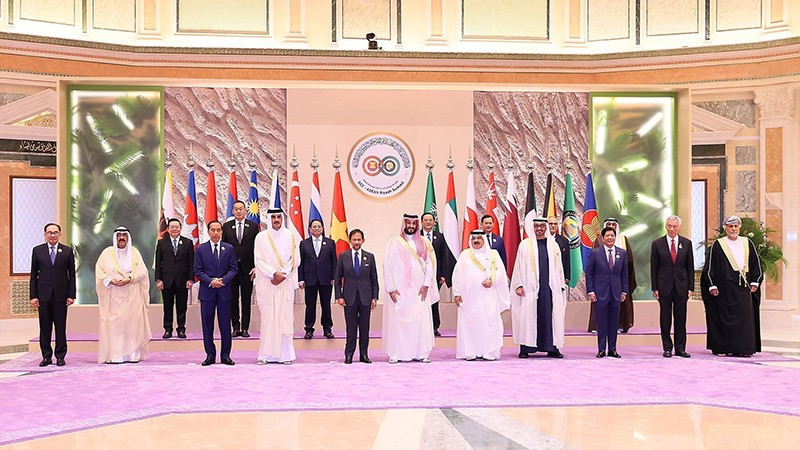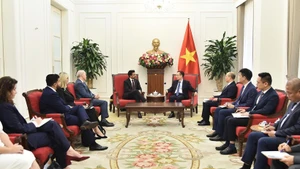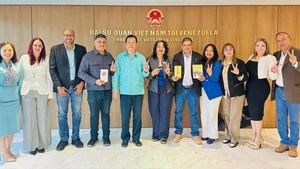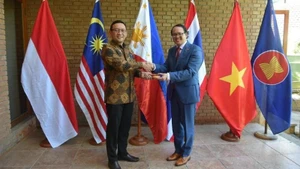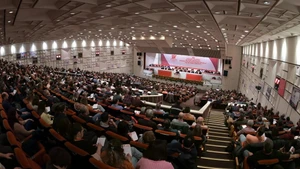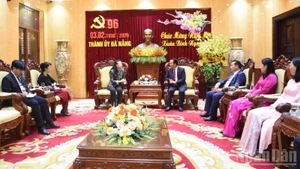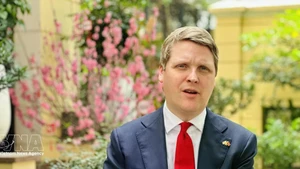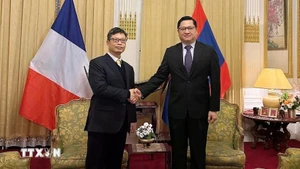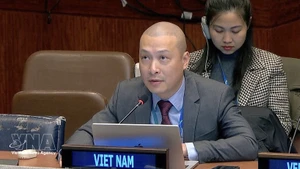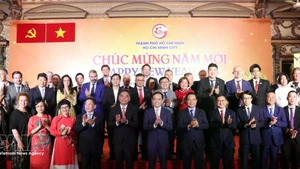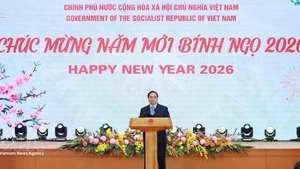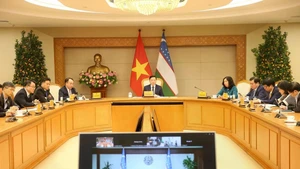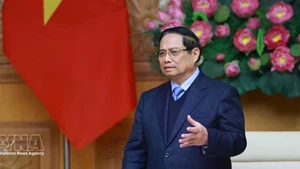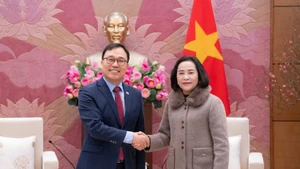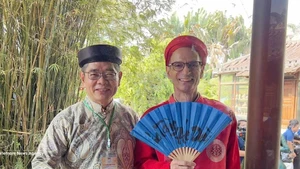In his speech, PM Chinh stressed that ASEAN and GCC need to join hands in promoting resilience, harnessing resources for growth, and taking substantive actions with the highest political determination and vigorous efforts. By doing so, the two regions could create tangible breakthroughs and become a highlight for regional and global collaboration.
ASEAN and the GCC should continue to create more favourable conditions to ensure that economic, trade, and investment ties will remain the key pillar and driver connecting the two regions, and complementing each other in the bid for mutual development, he said, adding that this will lay the foundation for investment funds and businesses from GCC countries to expand their business and investment in ASEAN, and allow ASEAN goods and services to enjoy greater presence in the Gulf.
Besides, both sides should give priority to together building a green, digital, circular, and sharing economy, pursuing sustainable agriculture, and expediting energy transition, he said.
Focus should be given to economic, trade, and investment ties, tourism, culture, education, and people-to-people exchange, the PM said.
It is also necessary to quickly institutionalise ASEAN - GCC cooperation via regular, substantive, and effective mechanisms in specific areas. Given their advantages as successful regional organisations, ASEAN and the GCC should support each other in upholding both sides’ central role and making meaningful contributions to peace, stability, and development in both regions and the world as a whole, according to the government leader.
He stressed that Vietnam strongly opposes all acts of violence and calls upon parties concerned to immediately put an end to violence against civilians, humanitarian establishments, and critical infrastructures.
Only negotiation, dialogue, peaceful settlement of disputes, and a two-state solution on the basis of international law and the United Nations Security Council (UNSC)’s relevant resolutions can pave the way for lasting peace in the Middle East and among all parties concerned, he believed.
At the summit, leaders of ASEAN and GCC agreed to maintain the regular exchange of views and meetings, including the plan to hold the ASEAN-GCC Summit biennially.
They underlined the need to focus on economic, trade, and investment cooperation, ensuring sustainable supply chains, connectivity, maritime cooperation, energy and food security, Halal industry, sci-tech and innovation, tourism, labour, energy transition, and climate change adaptation.
Amid complicated developments in the region and the world, both sides pledged to enhance multilateral cooperation, promote dialogue and cooperation, build trust, uphold the rule of law, respect independence, sovereignty, and territorial integrity, not interfere in each other's affairs, join hands to address global and regional challenges, and effectively contribute to peace, security, stability, and sustainable development.
Countries underscored the importance of maintaining peace, stability, security, safety, freedom of navigation and overflight in the region while settling disputes through peaceful means in accordance with international law, including the 1982 United Nations Convention on the Law of the Sea (UNCLOS).
They expressed concern over recent developments in the Gaza Strip, strongly condemned acts of violence against civilians, called on parties to immediately hold a ceasefire, put an end to acts of violence, respect the international humanitarian law, resume negotiations, settle disagreements via peaceful measures in line with international law and relevant resolutions of the United Nations in a bid to achieve a equitable, satisfactory and long-lasting solution to the Middle East peace process and ensure the lives, security and safety of people.
The summit adopted a Joint Statement that reflected the outcomes of exchanging views among leaders and outlined orientations for the development of ASEAN-GCC relations in the future, for the sake of peace, cooperation and mutual development.
